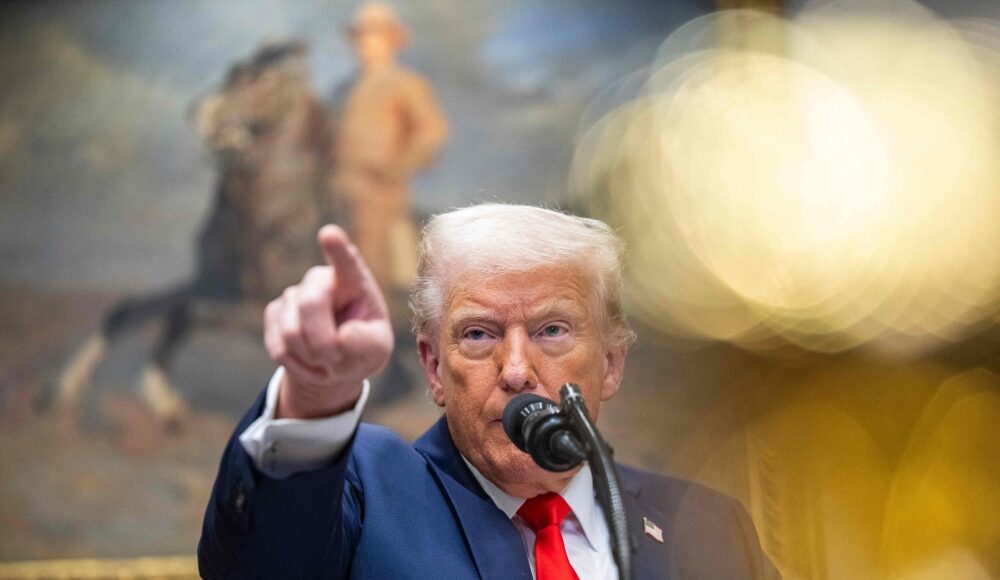JUNE 5 — In the theater of American politics, which is becoming ever more bizarre, few spectacles rival the audacity of President Donald Trump’s latest legislative endeavor: the so-called “One Big Beautiful Bill.”
This ambitious package, championed by the White House, promises sweeping tax cuts and increased spending, all under the guise of economic revitalisation.
True to form, President Donald Trump once again is peddling something big and bold despite the fact that the net effects are actually bad for the United States if not the whole world. How?
Beneath its gilded veneer lies a fiscal mirage that threatens to exacerbate the very issues it purports to resolve.
The Congressional Budget Office (CBO) projects that this bill would add a staggering US$2.4 trillion (RM10.18 trillion) to the national debt over the next decade. The US is already wobbling with a national debt of US$36 trillion.
As of 2024, according to the research of Professor Niall Ferguson, for the first time ever, the revenue of the US government can no longer generate enough income streams to pay off the interest cost of the national debt.
Any country that faced this problem in the past, be it Spain, Netherlands and the British Empire — in the heydays of colonialism even — has had to surrender its conquest.
Trump, rather than making “America Great Again”, is toying with the idea of making America grossly over leveraged.
Global and strategic economic imbalance would take on an added urgency and total realignment, some of which could include great and proxy wars.
Asean being a regional organisation at the crossroads of great power rivalries in all its maritime routes cannot avert itself from these problems.
At any rate, the key provisions of Trump’s tax cuts include making the 2017 tax cuts, eliminating taxes on tips and overtime, and significantly increasing defense and immigration enforcement spending.
While the administration touts these measures as catalysts for growth, many economists remain skeptical, warning that such unchecked borrowing could lead to higher interest rates and reduced private investment.
Notably, Elon Musk, once a proponent of governmental efficiency, has emerged as a vocal critic. Labeling the bill a “disgusting abomination,” Musk cautions against the unsustainable debt burden it imposes. His concerns are echoed by fiscal conservatives within the Republican Party, who fear that the bill’s expansive scope undermines long-standing principles of fiscal responsibility.
Moreover, the bill’s social implications are profound.
The CBO estimates that approximately 10.9 million individuals could lose health insurance coverage due to proposed cuts to Medicaid and the introduction of stringent work requirements.
Such measures disproportionately affect vulnerable populations, raising ethical questions about the administration’s commitment to social welfare.
In essence, the “One Big Beautiful Bill” epitomises a policy approach that prioritises short-term political gains over long-term fiscal stability and social equity. As the Senate deliberates its fate, lawmakers must weigh the bill’s alluring promises against its potential to deepen economic disparities and inflate the national debt.
The path to genuine reform lies not in grandiose legislation but in measured, inclusive policymaking that addresses the nation’s challenges without mortgaging its future.
“Making America Great Again,” (MAGA) seems to be bent on making America grab anything at will, in order to ingratiate itself to the grouchy and ghastly behavior of Trump.
Little wonder some of the member states of the Gulf Cooperation Council (GCC), a week after meeting Trump, have had to consider the importance of meeting the key leaders of Asean, in turn, China.
Even President Emmanuel Macron of France has had to fly to Vietnam, Indonesia and Singapore to entrench the interest of France in Southeast Asia.
One should keep in mind that France is a Development Partner of Asean and a self declared Indo Pacific power.
National leaders are not necessarily challenging Trump head on. But they are exploring different strategies and tactics of realigning themselves to a new order.
One where the Global North and Global South can work together granted that the US has seemingly adopted more and more policies that no longer make any common sense, despite the pledge of Trump to return the world to one that is defined by it during his inauguration in January 2025.
* Phar Kim Beng is a professor of Asean Studies, International Islamic University Malaysia.
* This is the personal opinion of the writer or publication and does not necessarily represent the views of Malay Mail.





